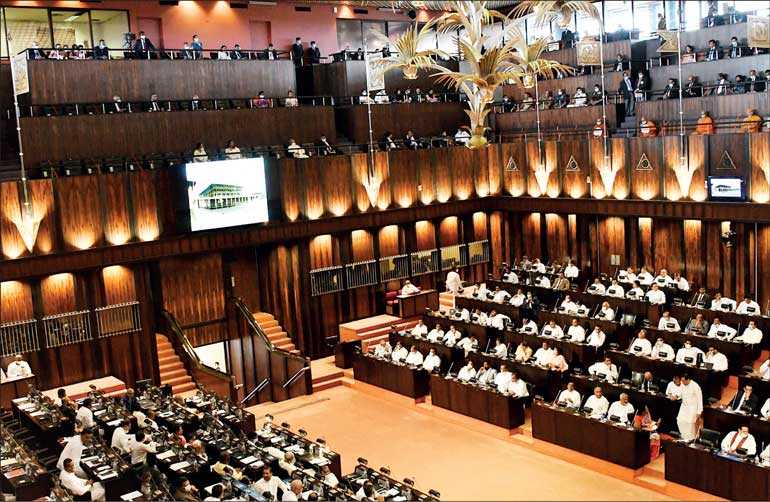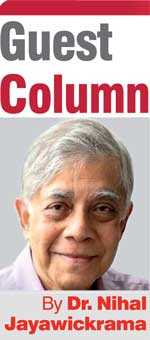Monday Feb 16, 2026
Monday Feb 16, 2026
Monday, 28 September 2020 00:20 - - {{hitsCtrl.values.hits}}

None of the legislators appear to have realised that what was taking place was in breach of the procedure laid down in the Constitution – Pic by Shehan Gunasekara
Last week, the controversial 20th Amendment Bill was placed on the Order Paper of Parliament, the  First Reading was moved by the Minister of Justice, and its journey through the legislature commenced. None of the legislators appear to have realised that what was taking place was in breach of the procedure laid down in the Constitution.
First Reading was moved by the Minister of Justice, and its journey through the legislature commenced. None of the legislators appear to have realised that what was taking place was in breach of the procedure laid down in the Constitution.
Section 41 of the Bill seeks to amend Article 154R, an Article in Chapter XVIIA of the Constitution. That Article provides for the establishment of a Finance Commission which would recommend the allocation of funds from the annual budget for the purpose of meeting the needs of the Provinces. The Commission includes three members appointed by the President on the recommendation of the Constitutional Council to represent the three major communities, each being a person who has distinguished himself or held high office, in the field of finance, law, administration, business or learning. Section 41 seeks to amend that Article by deleting the reference to the Constitutional Council, thereby enabling the President to act on his own when making these appointments.
Article 154G of the Constitution states that no Bill for the amendment or repeal of any provision in Chapter XVIIA shall become law “unless such Bill has been referred by the President, after its publication in the Gazette and before it is placed on the Order Paper of Parliament, to every Provincial Council for the expression of its views thereon”. That was not done because the term of every Provincial Council has ended, and the new Provincial Councils have not yet been elected. Therefore, placing the Bill on the Order Paper last week was not in accordance with Article 154G of the Constitution. Moreover, the failure to consult the elected Provincial Councils impinges on the franchise as well, an element of the sovereignty of the people protected by Article 3 of the Constitution.
Ordinarily, the solution would be to withdraw the 20th Amendment Bill from the Order Paper, delete section 41, and place the Bill back on the Order Paper. However, adopting that course will not resolve the problem. For as long as Article 154R remains in the Constitution in its present form, the Constitutional Council will also need to remain in place since it is on the advice of the Constitutional Council that the President may make appointments to the Finance Commission. But the 20th Amendment Bill seeks to abolish the Constitutional Council. Therein lies an almost intractable problem.
The anonymous draftsman of the 20th Amendment Bill, who apparently overlooked the requirements of Chapter XVIIA of the Constitution, and the Minister of Justice who moved the First Reading of the Bill, apparently disregarding the requirements of Article 154G (2) of the Constitution, will together need to resolve this dilemma.